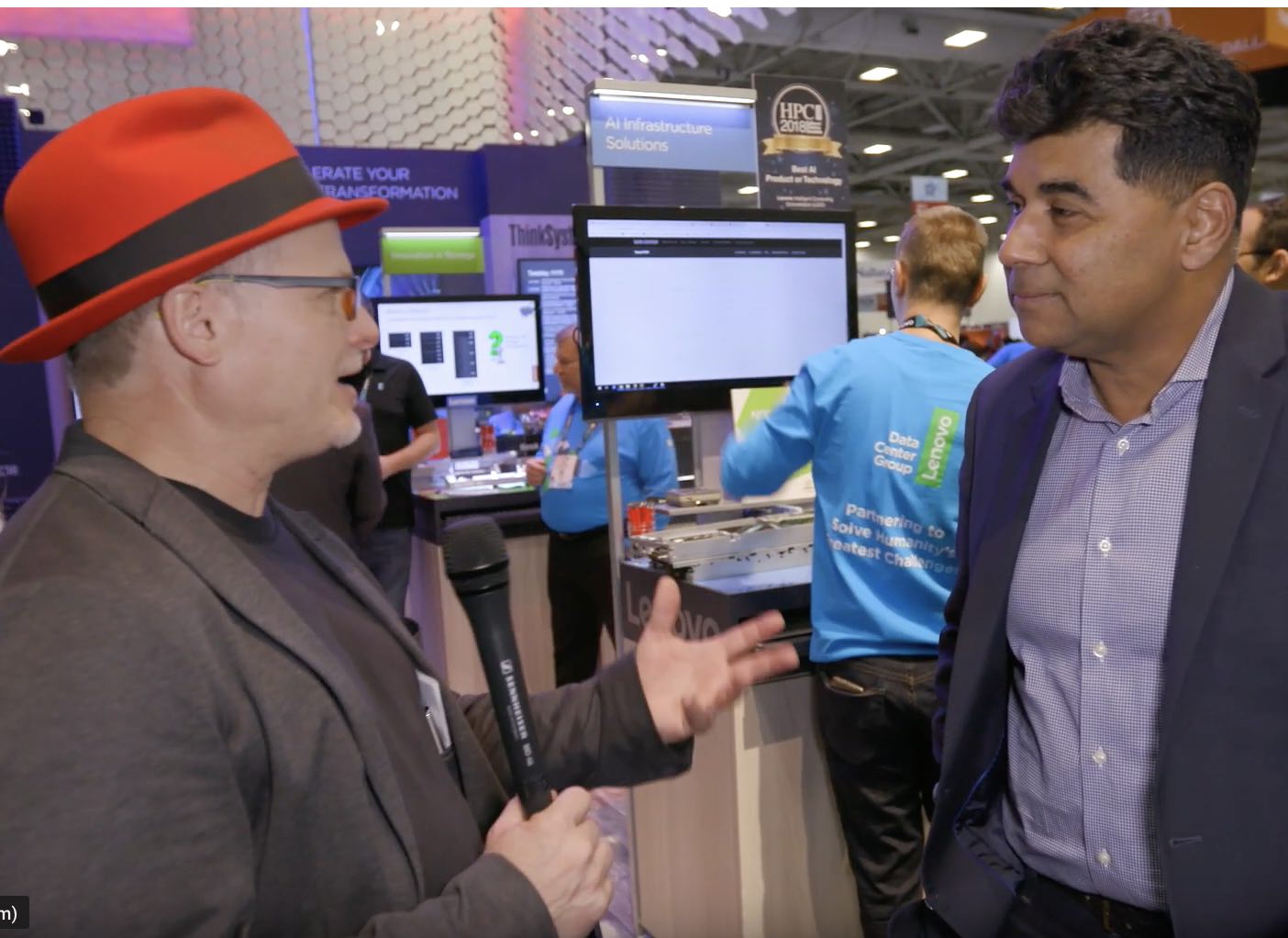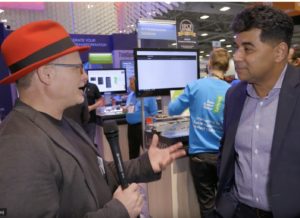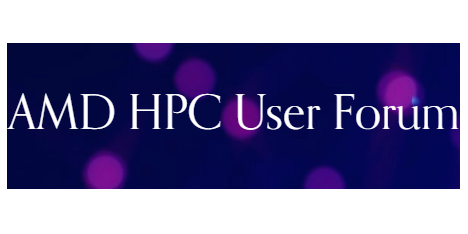In this video from SC18 in Dallas, Madhu Matta from Lenovo describes how the company is driving HPC & Ai technologies
for Science, Research, and Enterprises across the globe.
Lenovo cares about solving real-world problems, and working with researchers is one of the best ways to gather insights from those whose daily work involves high-computing data and analytics to do just that.”
At a recent conference, Lenovo hosted nine researchers from around the world who are dedicated to solving some of humanity’s greatest challenges such as tracking the spread of infectious diseases and reducing pollutants from jet fuel. These participants in Lenovo’s AI Innovation Challenge, are on the front lines of cutting-edge research across multiple disciplines, seeking to harness the intelligence revolution to improve how we live in, and interact with, the world around us. The participants represent schools as diverse as Oxford and Southampton in England, Technical University of Darmstadt in Germany, Yale, Texas A&M, University of Chicago, University of Washington, and Auburn University from the US, and Indian Institutes of Technology in India. They are all involved in post-graduate or doctoral work and were nominated by faculty based on their how their research utilizes HPC and Ai technologies to accomplish their aims.
The types of research on which these esteemed scholars are working are as varied as they are important:
- Jay Dhanoa from the University of Chicago is working on the prediction of the spread of infectious diseases using machine learning.
- Urmila Chadayammuri from Yale is searching and mapping galaxies far, far away by studying the distribution of dark matter in galaxy clusters within the Milky Way. Learn more about Urmila’s work in this video from Supercomputing 2017.
- Dr. Neil Ashton from Oxford is working on using simulated aerodynamics to reduce the time and cost of developing future aircraft.
- Dr. Zhangyang Wang’s “Atlas” project at Texas A&M University in the field of computer vision, which will improve application areas such as surveillance, autonomous/assisted driving, robotics and medical image analysis.
- Tomislav Maric, Technical University Darmstadt, in Germany is using AI to work on geometrical representation of fluid interfaces to improve the predictability of simulations of fluids, with multiple field applications. Hear more from Tomislav in this video.
- Dr. Jason Bond, from Auburn University is a noted biologist, specializing in spiders, specifically the identification, classification and taxonomy of spiders and millipedes including DNA analyses. Learn more about Dr. Bond’s work in this video from Supercomputing 2017.
- From the University of Southampton in the UK, Dr. Tiejun Ma is an Associate Professor in Risk and Decision Analytics working on AI assisted financial risk analysis and improving the predictive accuracy of forecasting methods. Hear more from Dr. Ma in this video.
- Krishnakumar Gnanambikai, of the Indian Institute of Technology, Mumbai, is utilizing AI as a tool to enable application security and to build dynamic applications that could detect and defend against ongoing attacks.
- Arshiya Chime, from the University of Washington, is focused on utilizing HPC/AI to develop cleaner burning jet fuels using simulations of a Jet Stirred Reactor (JSR) to model the fluid structure and chemical reactions of the fuel that cause NOx gasses that produce smog and acid rain. Hear more from Arshiya in this video.
Lenovo is dedicated to helping schools and researchers, like our AI Challenge participants, leverage the technology we deliver to augment their intelligence and work in these challenging fields of study. By delivering higher performance HPC and AI solutions, across compute, storage and networking, Lenovo is working with each of these prestigious institutions to further enable the research of these participants, and other scientists, to help solve humanity’s greatest challenges.





